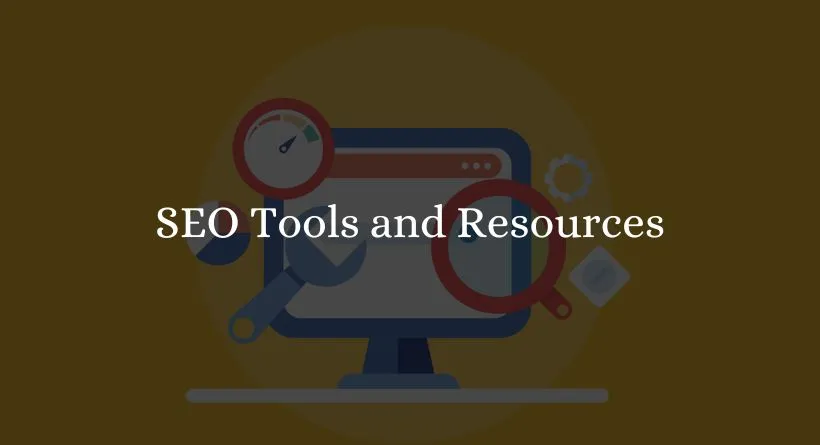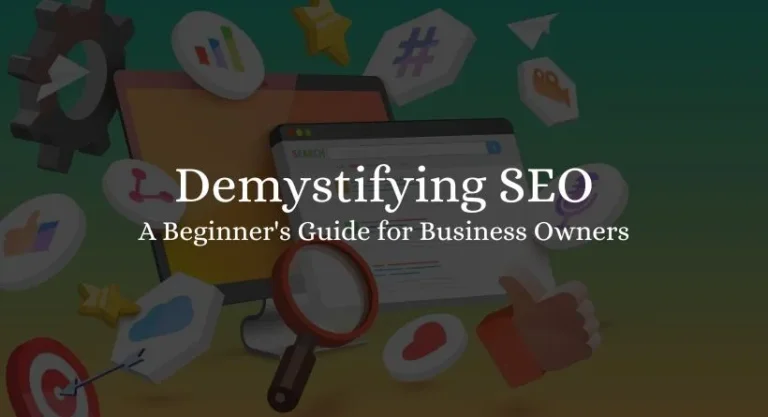As a business owner, you may feel overwhelmed by the concept of SEO, or Search Engine Optimization. It’s an understandable reaction: the world of SEO can be complex and confusing, with countless strategies and ever-changing algorithms. But here’s the thing—you’re not alone in this struggle. Many entrepreneurs find themselves puzzled by SEO and its importance in today’s digital landscape.
Rest assured, this blog post aims to dissolve that confusion. It promises to provide you with an understandable and comprehensive guide to SEO, designed specifically for beginners. By shedding light on key SEO aspects and breaking down complex terms, we intend to empower you to leverage SEO effectively for your business.
Now, let’s tackle this challenge head-on. Because the fact is, mastering SEO can mean the difference between your business blending in or standing out online. SEO can be your game-changer. So, ready to demystify SEO and embrace its potential for your business?
The Mechanics of SEO
How Do Search Engines Work?
Think of search engines as vast libraries. But instead of books, they store copies of web pages. When you type a query, search engines run a quick scan through these billions of pages using bots. They sift through their index to deliver the most relevant and authoritative results. The process is complex, but understanding it is your first step to mastering SEO.
The Role of Keywords in SEO
In the realm of SEO, keywords are your guiding stars. They are the phrases that users type into search engines. For instance, if you sell handmade soap, potential keywords could be “organic handmade soap” or “best natural soap.” Choosing the right keywords helps your website appear in relevant searches, thereby increasing visibility and traffic.
Understanding On-Page and Off-Page SEO
SEO can be categorized into two main types: on-page and off-page. On-page SEO refers to elements on your website that you can control, such as content quality and keyword optimization. In contrast, off-page SEO involves external factors like backlinks from other websites. Both are equally vital and should be part of your SEO strategy.
SEO Best Practices
Creating Quality Content
Good content is the backbone of successful SEO. It keeps your audience engaged, encourages them to share your posts, and increases the time they spend on your site—all positive signals to search engines. Remember, creating content isn’t about stuffing keywords but providing valuable information that resonates with your audience.
Importance of Mobile-Friendly Websites
Today, more people browse the web on their phones than on computers. Therefore, having a mobile-friendly website isn’t optional—it’s essential. Search engines favor mobile-friendly sites, and users are more likely to stay if the page loads quickly and is easy to navigate on their device.
The Power of Backlinks in SEO
Backlinks—links from other websites to yours—are like votes of confidence in the eyes of search engines. They indicate that your content is valuable and trustworthy. Earning high-quality backlinks can improve your search engine ranking significantly.
SEO Tools and Resources

Introduction to Google Analytics and Google Search Console
Tools like Google Analytics and Google Search Console provide invaluable insights about your website. They show you how people find your site, which pages they visit, and how long they stay, to name a few. Such data can inform your SEO strategy, helping you optimize effectively.
Role of SEO Tools like SEMrush and Ahrefs
Specific SEO tools, like SEMrush and Ahrefs, can provide deeper insights into your SEO efforts. They help with keyword research, track your rankings, analyze your competitors, and much more. Though they may require an investment, the return in terms of SEO success can be considerable.
Free Resources for Learning SEO
If you’re keen on improving your SEO skills, there are plenty of free resources. Blogs like Moz and Search Engine Journal regularly publish SEO guides and updates. Also, Google’s SEO Starter Guide is a comprehensive resource that’s worth a read.
Overcoming SEO Challenges
Common SEO Pitfalls and How to Avoid Them
SEO isn’t without its pitfalls. Common mistakes include selecting irrelevant keywords, neglecting mobile optimization, and producing poor quality content. By understanding and addressing these challenges, you can avoid the stumbling blocks many businesses face.
Coping with Algorithm Updates
Search engine algorithms are constantly evolving, which can impact your rankings. Stay updated with these changes, adapt your strategies, and remember—consistent quality content remains evergreen.
The Role of Patience in SEO Success
Lastly, remember that SEO is a marathon, not a sprint. Results may take time, but with patience and persistence, your efforts will pay off. So, keep optimizing, keep learning, and hold the course. After all, SEO is a journey, not a destination.
May Also Like Reading: Entrepreneurship: Converting Your Passion into a Profitable Business 2023
Conclusion:
Understanding SEO can be a daunting task, but it is an essential component for your online success. By grasping the mechanics of SEO, you’ve learned how search engines work, the significance of keywords, and the different aspects of on-page and off-page SEO.
You’ve uncovered the best practices to follow, such as crafting high-quality content, ensuring your website is mobile-friendly, and the pivotal role of backlinks. Moreover, you have gained knowledge about essential SEO tools and resources that can boost your strategies, like Google Analytics, Google Search Console, SEMrush, and Ahrefs.
Despite the challenges that you might face, such as common SEO pitfalls, the constant algorithm updates, and the time it takes to see results, remember that your patience and persistence are key to success. SEO is a journey, not a destination.
You are now armed with insights that will empower you to tackle your SEO journey. Be patient, keep learning, and remember – the world of SEO is vast, but it is also full of opportunities for those who dare to navigate it.







